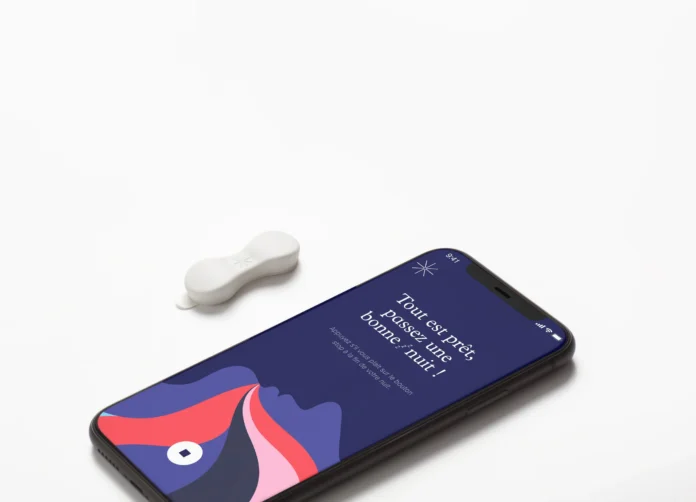NAMUR, Belgium– Belgium-based scale-up, Sunrise, announced today the U.S. Food and Drug Administration (FDA) has cleared for use its second generation at-home sleep apnea test that uses artificial intelligence (AI) to aid in the diagnosis of obstructive sleep apnea and sleep-related breathing disorders. The Sunrise team is using a novel way to measure sleep through the bio-signal of Mandibular Jaw Movements (MJM), which has been studied for decades.
Laurent Martinot, CEO and co-founder of the company, said the new device utilizing the powerful Mandibular Jaw Movements signal alongside the traditional signals of airflow and oximetry brings a new level of clinical information and ease of use never seen before in home sleep testing. “We have clinically validated our sensor against the gold standard of polysomnography on thousands of patients to measure sleep-disordered breathing”, he added.
Atul Malhotra, MD, board-certified pulmonologist, intensivist and research chief of Pulmonary, Critical Care and Sleep Medicine at UC San Diego Health, commented : “Home sleep tests have come a long way in recent years and are now well established in diagnosing sleep disorders in appropriate patients. Despite this success there remain shortcomings and the Sunrise device appears to close some of these gaps in its ability to convey relevant information about hypoxic burden and total sleep time spent with increased respiratory effort, a key component of obstructive sleep apnea that has been linked to cardiovascular and mortality outcomes”.
New features that will be available on this at-home sleep apnea test include the ability for patients to complete multi-night testing. “Night to night variability in sleep studies is well documented and incorporating a multi-night capability in an economical manner, allowing to capture longitudinal data over time, will improve diagnostic confidence,” explained A. Malhotra.
Through its AI-based solution, Sunrise’s proven technology paves the way for expanding access and reach across health systems and clinics with the goal to help improve health outcomes.
The technology captures Mandibular Jaw Movements (MJM) with one point of contact – a lightweight sensor placed on the chin that records the jaw’s movements. Data is collected through an app, analyzed with an algorithm using AI and made available to healthcare providers through a secured online portal.






